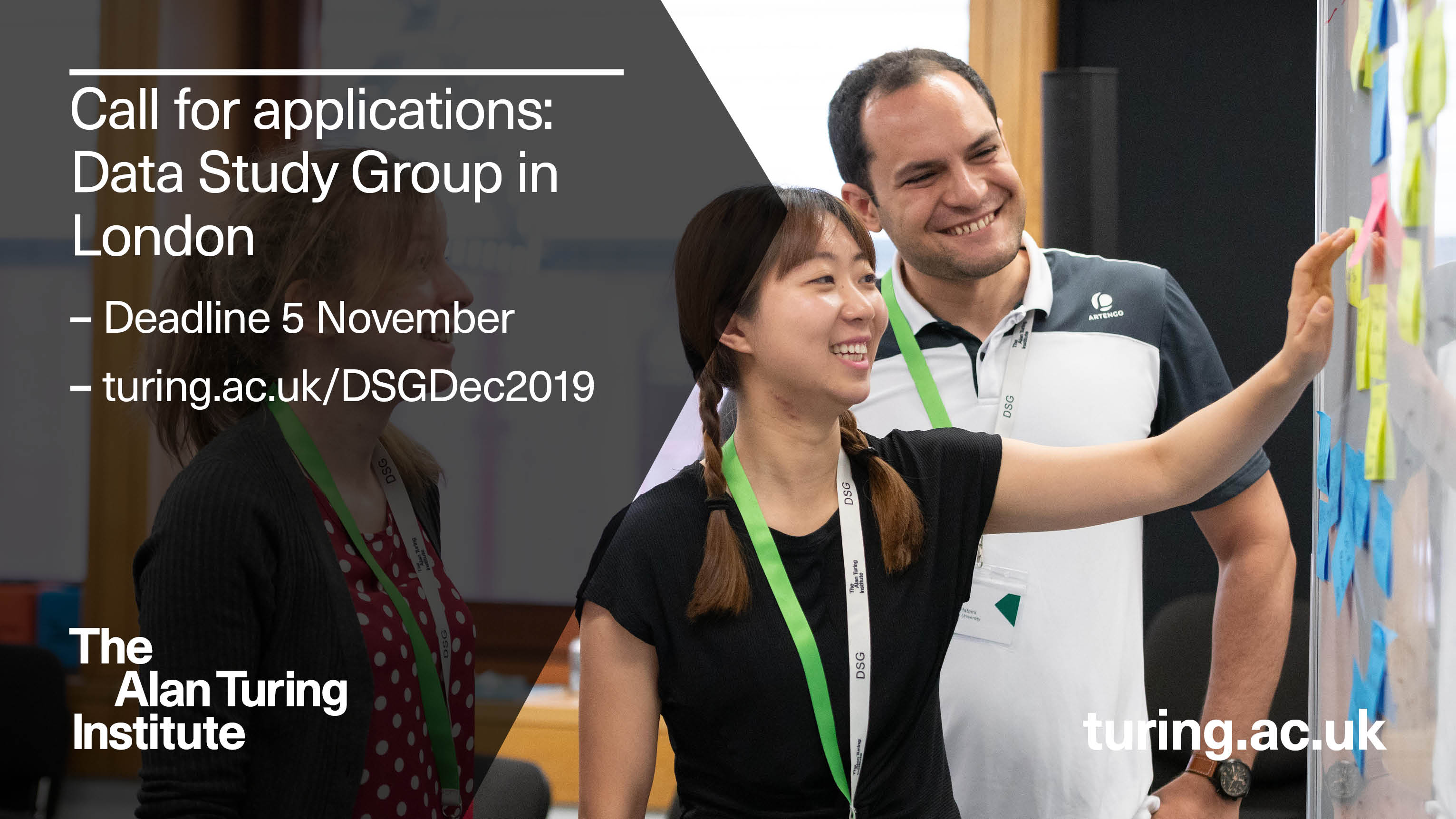Call for applications - Turing Data Study Group
Applications to take part in The Alan Turing Institute’s next Data Study Group event are now open.
Turing Data Study Groups are intensive five-day collaborative hackathons in which researchers work on real-world challenges and data from industry, government and the third sector. The events offer is a fantastic opportunity for early career researchers, PhDs and postdocs to rapidly develop their data science skills using real-world data. The event also offers participants the chance to forge new networks for future research projects and build Turing and industry links. Challenges have been put forward by WWF, Dstl, The National Archives, SenSat and Agile Datum.
Deadline for applications: 5 November 2019. Find out more and apply

What is a Turing Data Study Group?
A Turing Data Study Group is a five-day collaborative hackathon held at The Alan Turing Institute in London. It provides a fantastic opportunity for early career researchers to tackle real-world data science problems, engage with the Turing community and with industry and experience working in teams in a fast-paced environment. The event also offers participants the chance to forge new networks for future research projects. Travel, accommodation (for those not based in London) and sustenance are all covered.
Who should apply?
Researchers are typically PhD students, postdocs and early career academics from statistics, computer science, engineering, mathematics, and computational social science, as well as wider disciplines where data science and AI skills are increasingly becoming relevant.
Key information
- The Data Study Group will take place Monday 9 December - Friday 13 December 2019.
- Applications must be submitted via the Institute's application portal.
- The deadline for applications is Tuesday 5 November 2019 12:00 noon GMT.
How should the opportunity be communicated?
We know communication channels vary from university to university but we suggest:
- Word of mouth: Emailing the attached or speaking about the opportunity to those who may be interested in applying, or contacts who can help spread the word.
- Research Facilitation network: Your university may have a Research Facilitation network – the attached article can be sent to their inbox with a request for circulation to their mailing list.
- Internal communications: Sending the attached newsletter article to your university’s central communications team for internal dissemination (internal newsletter, intranet etc).
- Digital signage: Sending the attached screen artwork to your university’s central communications team or facilities contact to put on display on promotional screens across the university.
- Any other channels at your disposal that can be used to reach early career researchers.